Last July Onza announced the arrival of the new Aquila tires, dedicated to enduro and downhill riding. Available in two casings, either in a lightweight TRC version, with single 60tpi ply and anti-cut reinforcement, or in a more robust GRC version, with double 120tpi ply and double anti-cut reinforcement, we received a set of 29-inch tires a few months ago with a TRC casing and 2.5-inch width.
The weight measured on our scale was 1085 grams, slightly more than the claimed 1050 grams.
The new version of the Eagle has more aggressive outer row knobs with 20 percent more height than the previous model, while the center row knobs are larger in size to better attack the ground when braking and are equipped with more accentuated ramps to improve rolling speed..
The compound is Soft Compound 50, which Onza adopts on its gravity tires with 50a center knobs and 45a outer knobs.
Onza Aquila on the trail
The Aquila has grown from 2.4″ to 2.5″ than the previous model, thus increasing the air volume and overall comfort of the tire. Personally, I’m a fan of the 2.4″ because I find the tire more precise and easier to control, but it’s certainly not this small difference that made me dislike Onza’s new product.
I mounted the tires on the Canyon Spectral CFR that I use for long term testing, and as a first thing I tried them for a two-day shuttle ride on the trails of Finale Ligure. From the wet of the first morning, I went through the dry of the afternoon and the next day to a torrential rain on the last descent. The thing that immediately jumped out at me was how the new TRC-casing Aquilas are great all-rounders, as they never surprised me in the negative with all these terrain changing.
Mounted on rims with a 30mm inner channel, set tubeless and inflated to a pressure of 1.6 bar at the rear and 1.4 at the front, they immediately offered great grip thanks to their rather soft compound and high side knobs that bite into the ground when cornering.
The knobs spacing is a good compromise between smoothness and traction; in fact, I then used the Spectral for my usual rides on the local trails, with lots of climbing, including paved climbs. In this occasion I would have preferred to have a different tyre-width at the rear, possibly a 2.4″ or a 2.35″, because the 2.5″ increases rolling resistance and uphill fatigue. Furthermore one would be able to save a few grams without penalizing off-road grip.
Where the Aquilas shine are on the loose ground: the big air volume at the front gives confidence and the casing is hard enough to absorb small bumps and at the same time be durable to avoid pinching. In all these months of testing, in fact, I have never had a puncture, despite the fact that, for example in Finale Ligure, steps and rocks taken at speed are not lacking.
The grip does not disappoint even when braking, regardless of whether you are on soft or hard ground. It does, however, go to the limit in the presence of mud. In winter it is not uncommon to find some mud due to night frost melting during the day, a condition that brings the Aquila to the limit because the knowb are not spaced far enough apart to allow the tire to be cleaned quickly by rolling. It must be said, however, that this is not a mud tire, but again, a less generous section would help to pull up less sticky mud, particularly at the rear, which tends to slide off under braking when filled with mud.
Conclusions
Let’s say that the Aquilas are positioned exactly in that category of tires that weigh just over a kilogram and are perfect for all mountain use, so on bikes with 140-160mm of travel. I had written an article some time ago precisely about weight, which, in the end, is a key indicator of the robustness and use that can be expected from a tire.
The good balance between the robustness of the casing, the soft compound and the confidence that the 2.5″ infuses make it a tire that I would highly recommend to all mountain riders. It would be a perfect set of tires if there were a 2.4″ version for the rear.
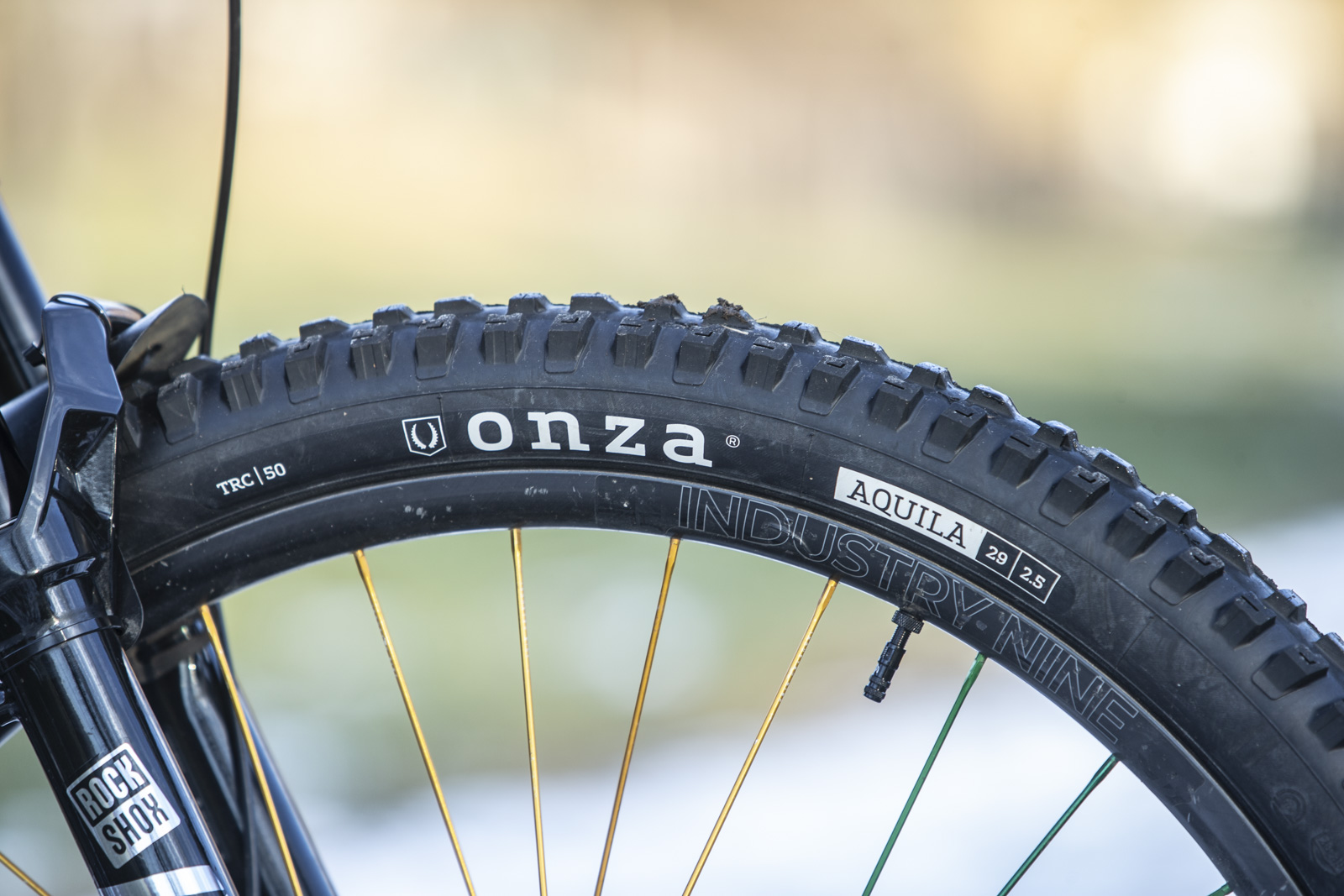



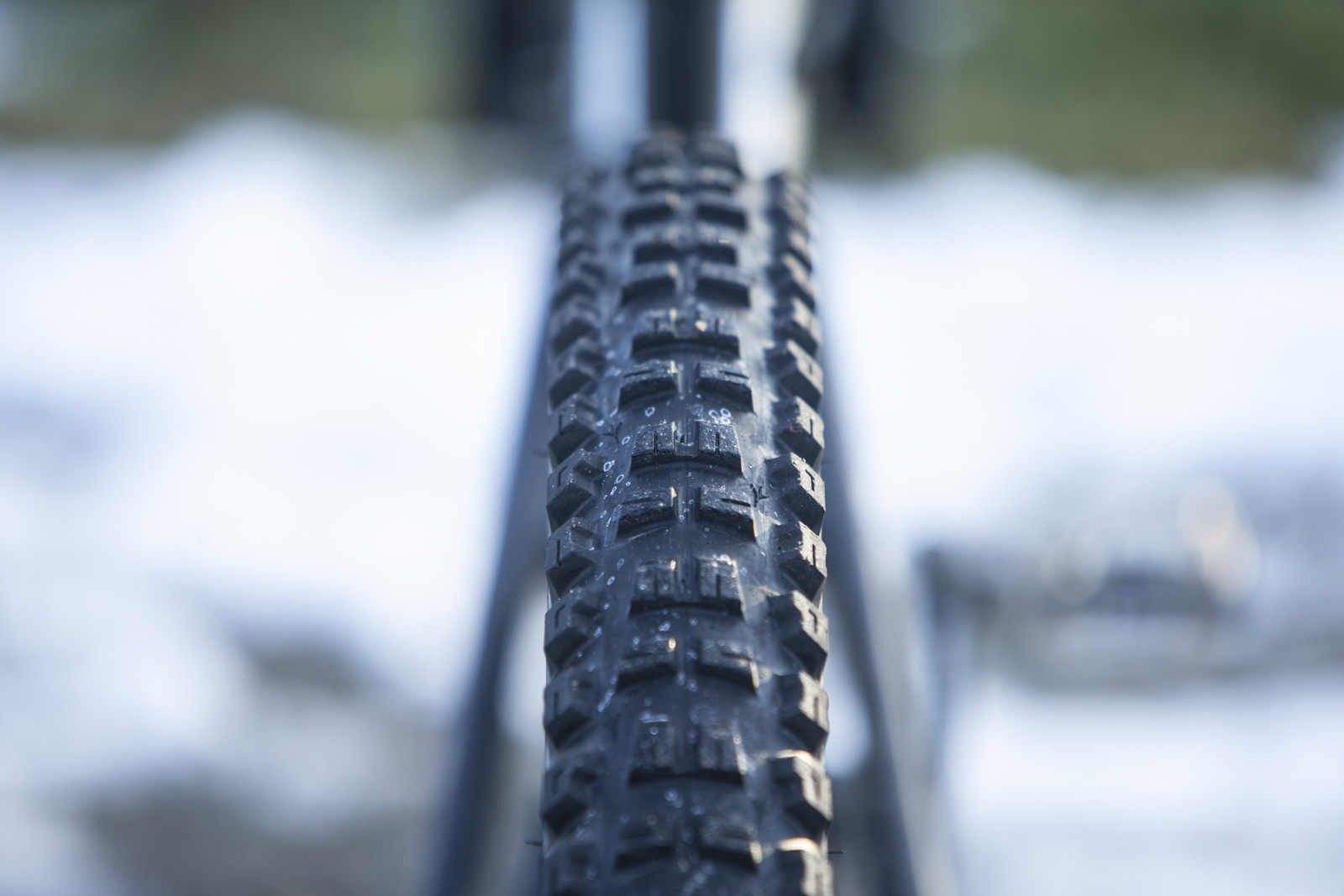
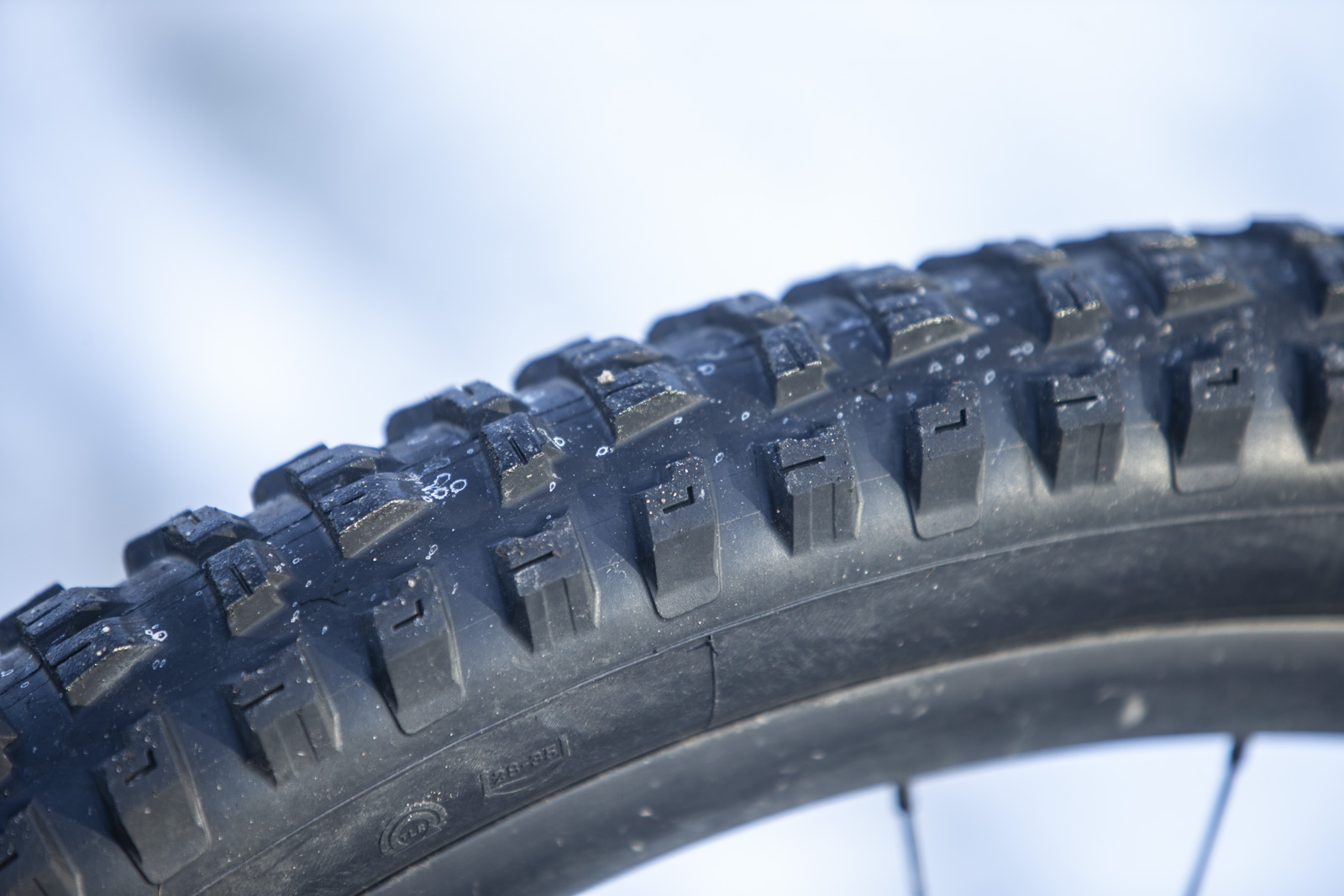
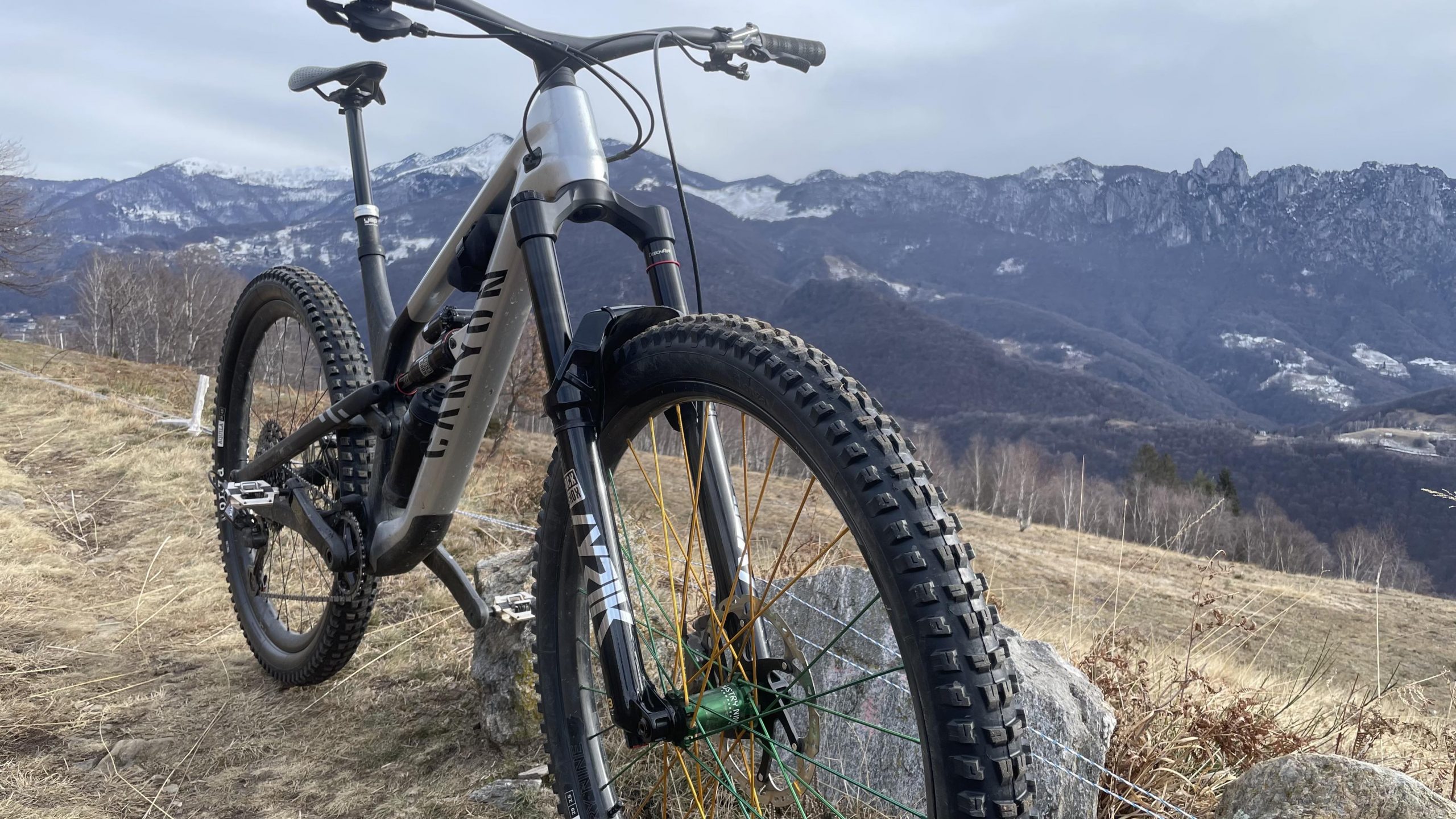
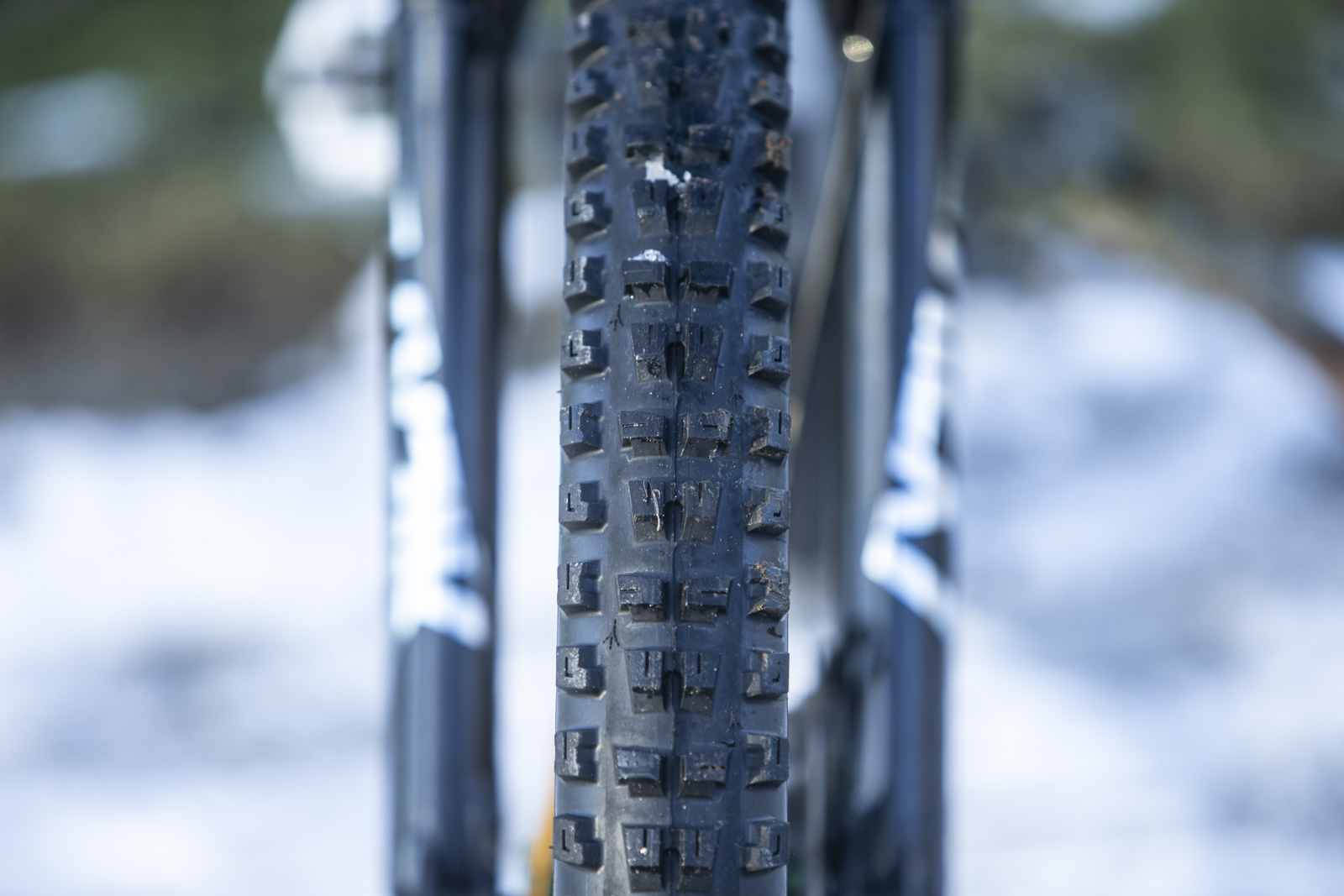
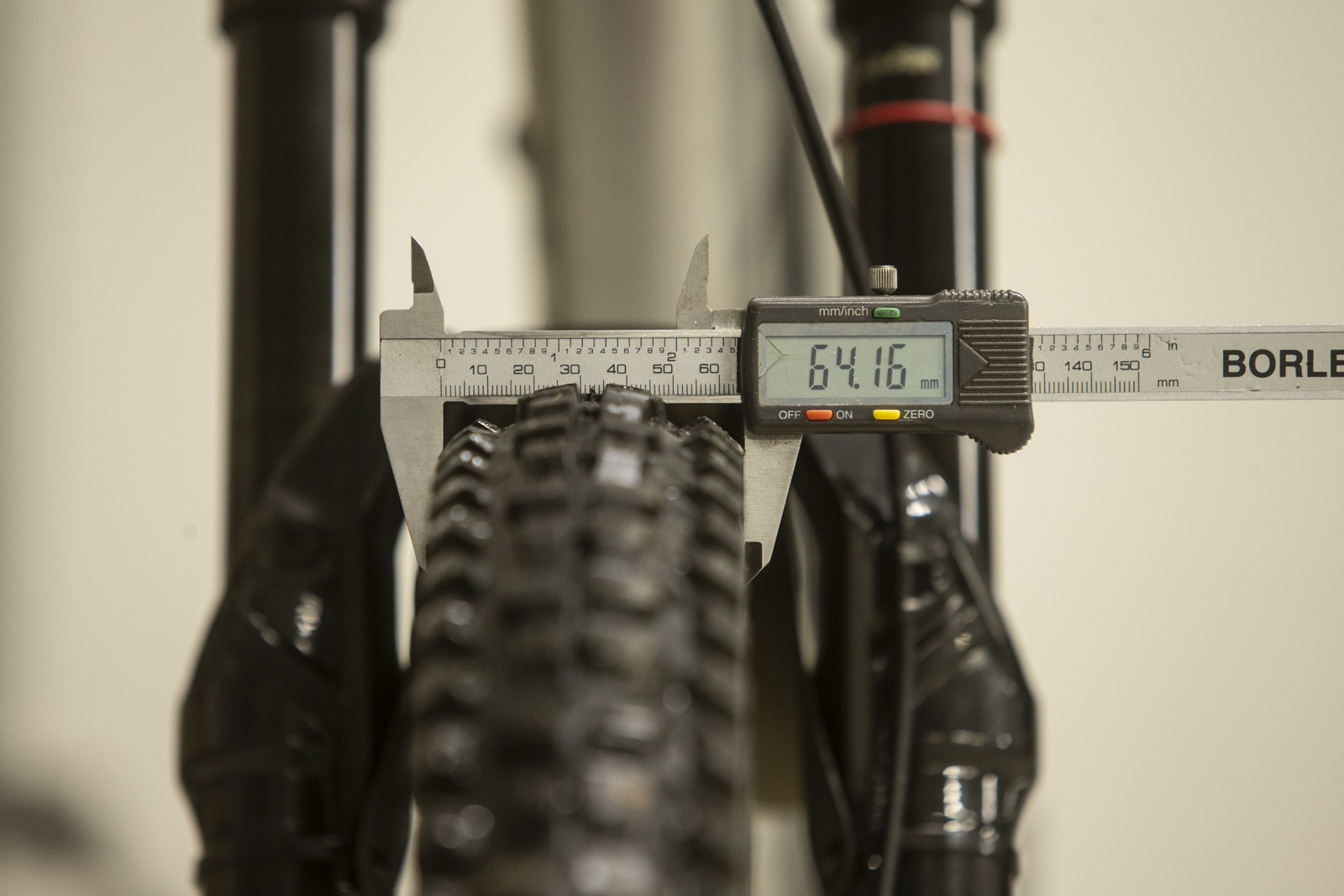

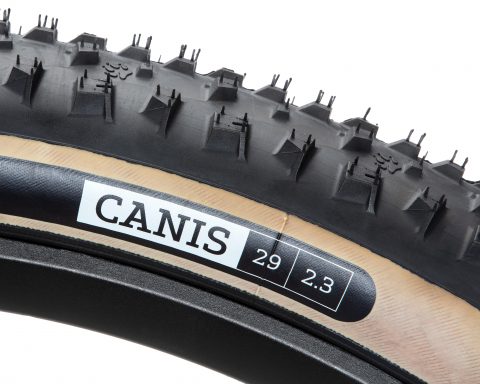

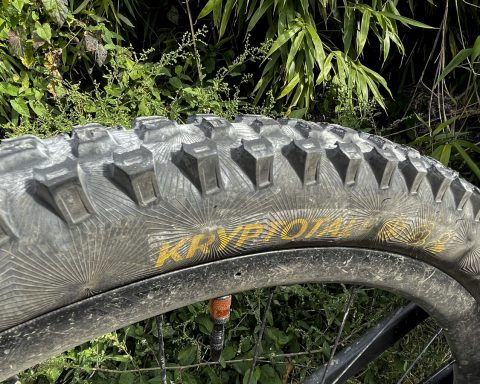

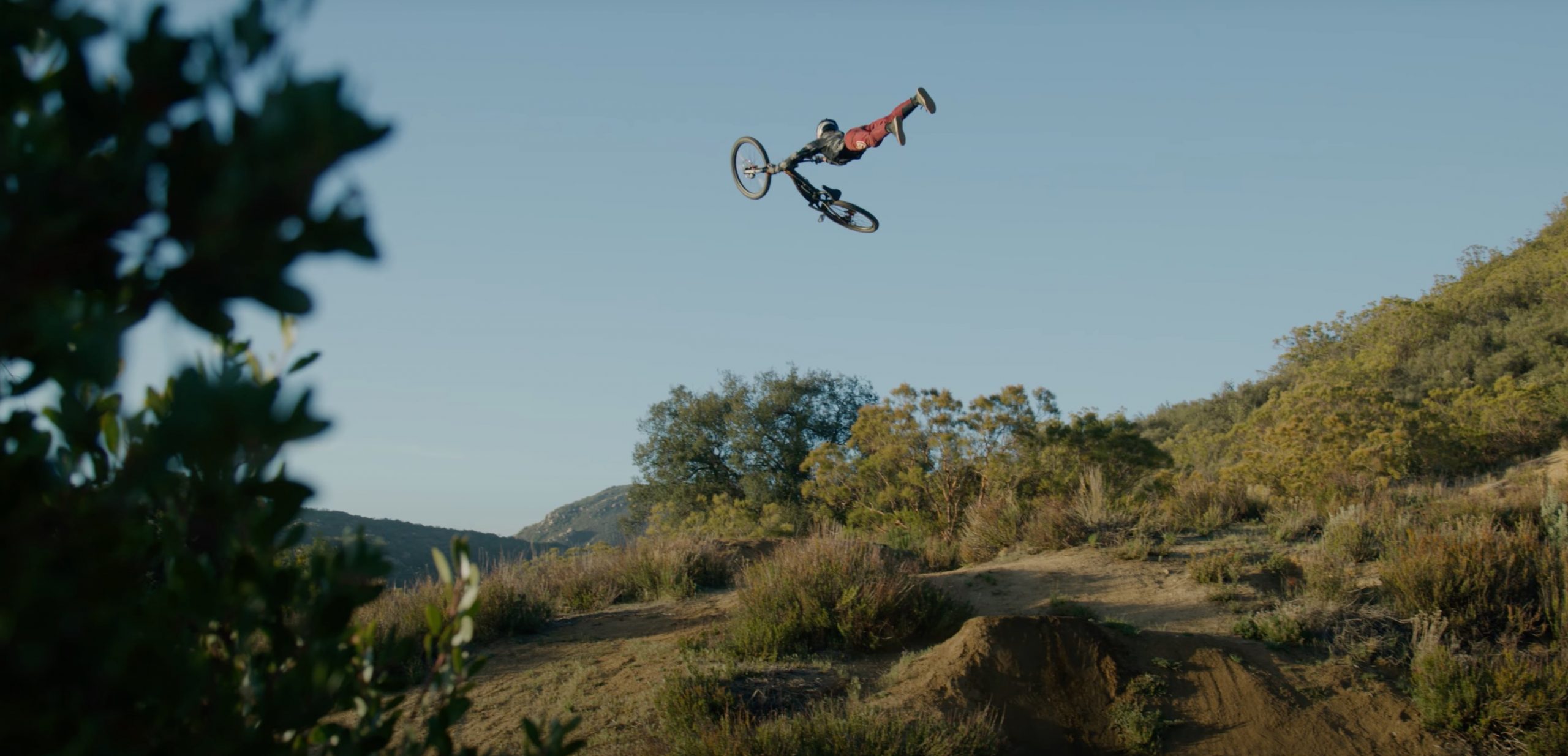





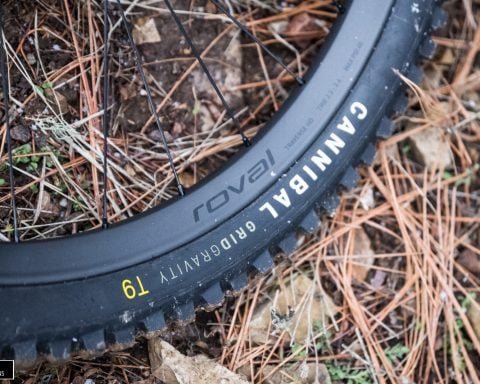
Comments